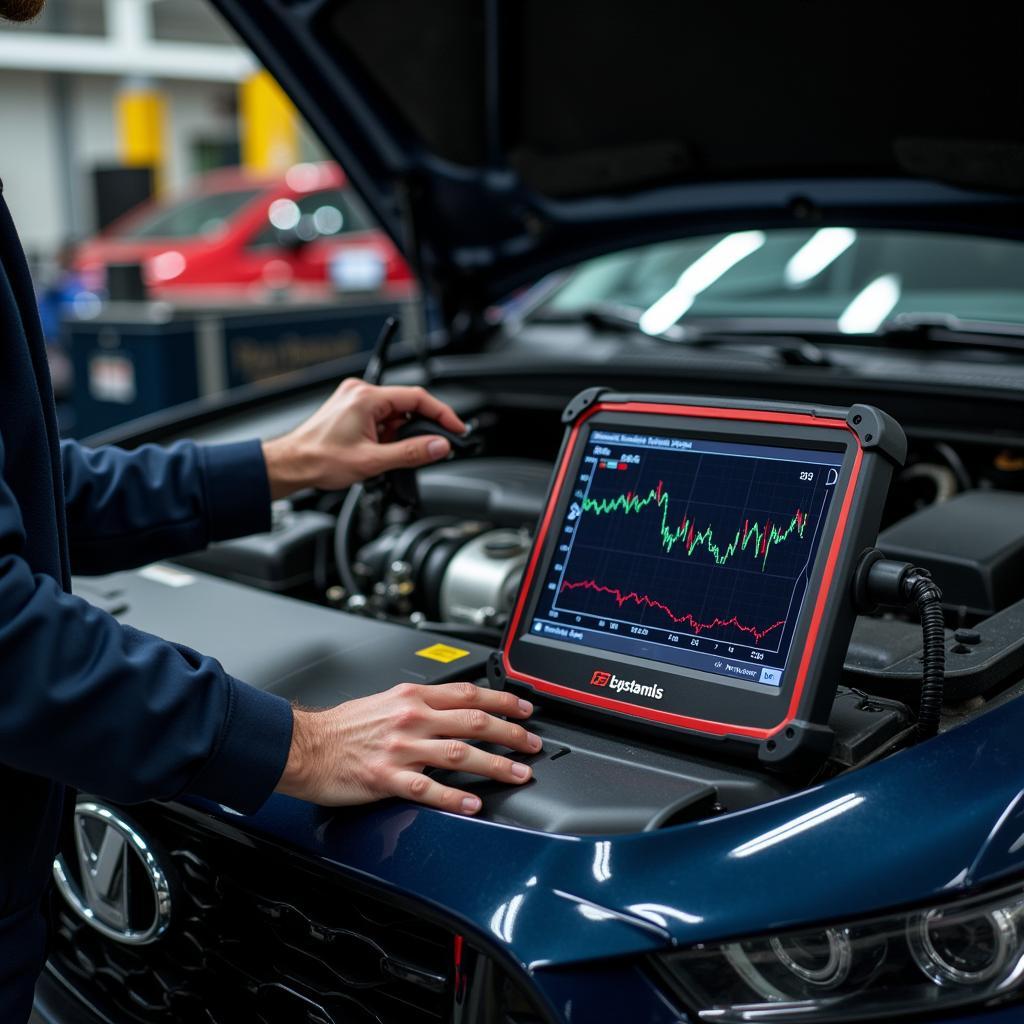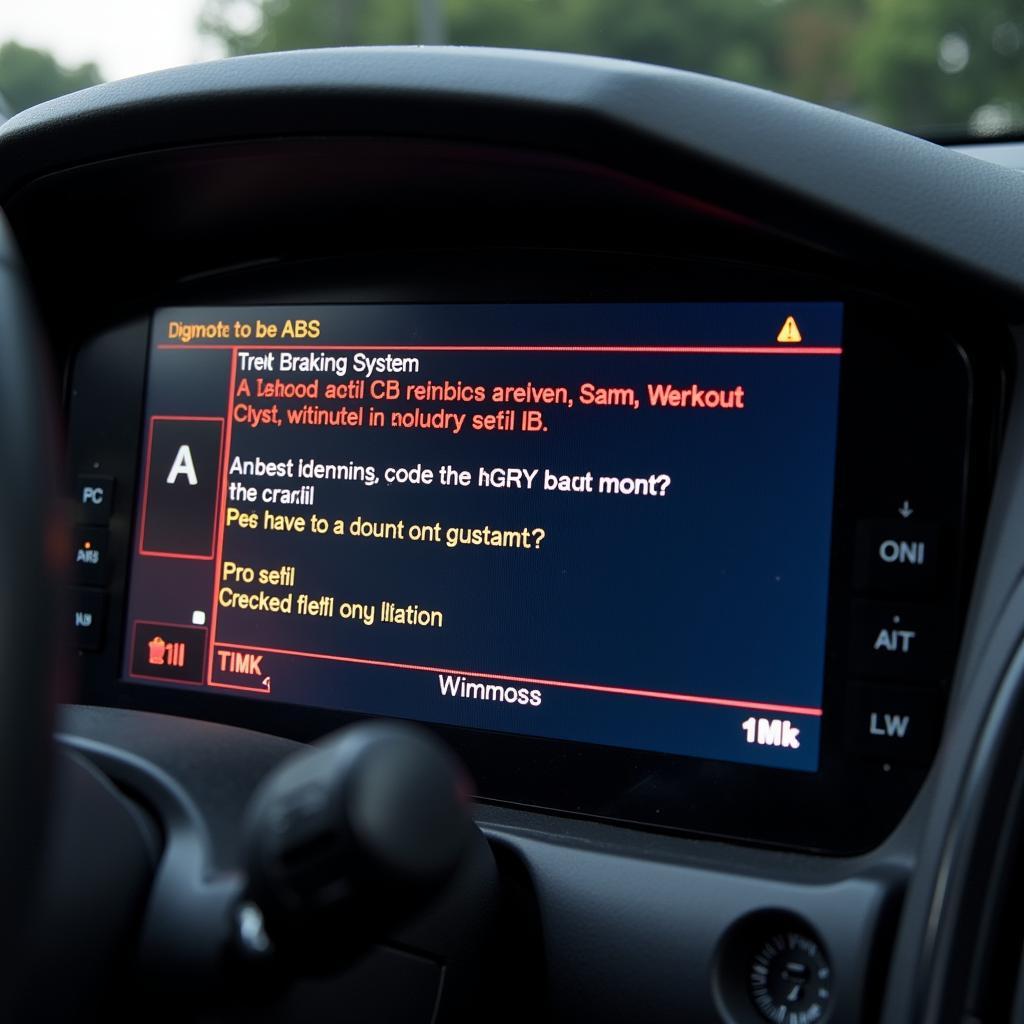Car Diagnostic Kits have become indispensable tools for mechanics and car enthusiasts alike. With vehicles becoming increasingly complex, these kits provide the ability to read and understand the electronic systems that control everything from engine performance to safety features. Whether you’re a seasoned mechanic or a DIY enthusiast, understanding car diagnostic kits is crucial in today’s automotive landscape.
What Are Car Diagnostic Kits and Why Are They Important?
At their core, car diagnostic kits are electronic devices that connect to a vehicle’s onboard computer, also known as the Engine Control Unit (ECU). This connection allows the kit to retrieve diagnostic trouble codes (DTCs) that indicate malfunctions within the vehicle’s systems. These codes are essentially standardized messages that provide clues about the nature and location of the problem.
Imagine your car’s dashboard warning lights as a cry for help. While they signal that something is wrong, they often don’t provide specifics. This is where car diagnostic kits come in – they act as translators, deciphering those cries into understandable language. By reading the DTCs, you gain valuable insights into the root cause of the issue, enabling quicker and more accurate repairs.
Types of Car Diagnostic Kits: From Basic to Professional Grade
The market offers a wide range of car diagnostic kits tailored to different needs and budgets. Understanding the different types can help you choose the one that aligns best with your requirements.
- Code Readers: As the name suggests, code readers primarily focus on retrieving DTCs. They are generally budget-friendly and suitable for car owners who want to understand basic engine issues.
- OBD-II Scanners: These scanners offer a step up from code readers by providing more detailed information beyond DTCs. They can display live data streams from various sensors, allowing you to monitor engine parameters in real time.
- Professional-Grade Scanners: Designed for experienced mechanics and workshops, these sophisticated kits offer advanced functionalities. They can access manufacturer-specific codes, perform bi-directional controls (sending commands to the vehicle’s systems), and provide comprehensive diagnostic capabilities.
 Mechanic Using a Professional-Grade Car Diagnostic Kit
Mechanic Using a Professional-Grade Car Diagnostic Kit
Choosing the Right Car Diagnostic Kit for Your Needs
With so many options available, selecting the right car diagnostic kit can seem daunting. Consider these factors to make an informed decision:
- Your Skill Level: If you’re a beginner, a basic code reader or OBD-II scanner might be sufficient. For professional use, investing in a high-end scanner is essential.
- Vehicle Compatibility: Ensure the kit you choose is compatible with the make, model, and year of your vehicle. Older vehicles may require different connectors or protocols. Check out our car diagnostics kits section for more information.
- Features and Functionality: Determine the features that are important to you. Do you need live data streaming, bi-directional controls, or manufacturer-specific code reading?
- Budget: Car diagnostic kits range in price from affordable to quite expensive. Set a budget beforehand to narrow down your options.
Benefits of Using Car Diagnostic Kits
The advantages of incorporating car diagnostic kits into your automotive toolkit are numerous:
- Accurate Diagnosis: By pinpointing the root cause of issues, these kits eliminate guesswork and unnecessary repairs.
- Time Savings: Quickly identifying problems translates to faster repairs, saving you valuable time and effort.
- Cost-Effectiveness: Avoiding unnecessary part replacements and labor costs due to misdiagnosis can save you significant money in the long run.
- Empowerment and Knowledge: Understanding your vehicle’s health empowers you to make informed decisions about maintenance and repairs.
Common Uses of Car Diagnostic Kits
Car diagnostic kits find applications in various scenarios:
- Diagnosing Engine Problems: Identifying issues related to engine performance, emissions, and fuel efficiency.
- Troubleshooting Transmission Issues: Detecting problems with gear shifting, slippage, or other transmission-related malfunctions.
- Analyzing ABS and Airbag Systems: Diagnosing problems with braking, traction control, and supplemental restraint systems.
- Resetting Warning Lights: After addressing the underlying issue, car diagnostic kits can be used to clear dashboard warning lights.
 Car Diagnostic Kit Displaying an ABS Error Code
Car Diagnostic Kit Displaying an ABS Error Code
The Future of Car Diagnostics
As vehicle technology continues to evolve, so too will car diagnostic kits. Expect to see more advanced features, increased connectivity options (such as Bluetooth and Wi-Fi), and cloud-based platforms that offer even more powerful diagnostic capabilities.
Conclusion
Car diagnostic kits have transitioned from being specialized tools used primarily by mechanics to essential equipment for any car owner or enthusiast. Their ability to provide insights into a vehicle’s electronic systems, enable accurate diagnosis, and save time and money makes them indispensable in today’s automotive landscape. By understanding the different types of kits available and choosing the one that best suits your needs, you can empower yourself with the knowledge and tools to keep your vehicle running smoothly for years to come.
If you are a novice and are unsure about using car diagnostic scanners, head over to our article on “are car diagnostic scanners easy to use a novice” for more information. You can also check out in-depth reviews of specific kits like the “android car diagnostic kit” or the “auto maxel car diagnostic kit” to see how they can benefit you.

Leave a Reply